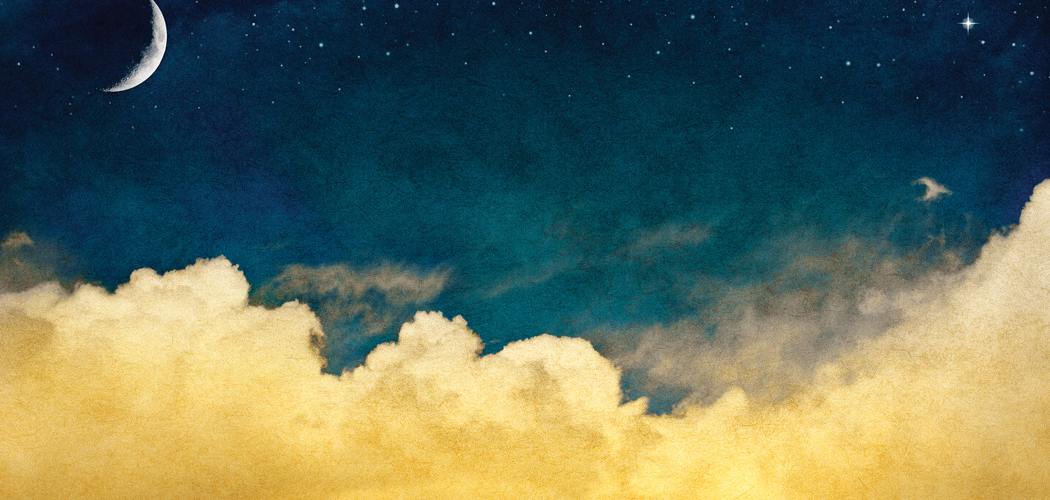[title subtitle=”fiction: Marla Cantrell”][/title]
Me and Hollis are bundled up and sitting on his front porch and we’re listening to the old stuff – Johnny Cash, Patsy Cline, Eddie Arnold, Roy Acuff, Kitty Wells – and we’re comparing them to some of the new singers, guys and gals about as sincere as Hollywood and twice as pretty. All their faces are smooth like a month-old concrete sidewalk, even the stars older than we are.
Hollis shakes his head, rubs his beard, and says, “They don’t hold a candle.” And then, butted right up against that sentence, he says, “You remember when Mama and Daddy danced right over there?” and this is where he takes his cigarette and points to the pecan tree that’s so tall it blocks out the sun when it’s leafed out proper, which it would be if it wasn’t December.
“I remember it all,” I say, and that’s when Roy Acuff starts singing “Tennessee Waltz,” and the fiddle kind of reaches out and grabs both of us, and Hollis reaches for the porch railing to steady himself, and I grab hold of the arms of the rocking chair and close my eyes.
“They cut quite a rug,” Hollis says. And then, as if I didn’t know exactly who he meant, he says, “Mama and Daddy did.”
“That was the first time I realized what a beauty your mama was, but I was only fifteen then, and already so in love with you I couldn’t see good,” I say, and Hollis bows his head so I can’t see his face at all.
“You’re still pretty as a shined-up pickup, Jubilee,” he says.
“Maybe thirty years ago I didn’t look so bad,” I say. “Maybe before I got knocked around by love and what-not and lost my mind.”
Hollis looks off to the north, to the lights of the nearest town that sits at the tip-end of Arkansas. “We all lost our minds eventually,” he says, “even Mama at the end, when we had to put her in the home. Daddy would sit with her every day.”
“It’s why you can’t love nobody,” I say. “You got a inflated view of what love looks like.” We’d brought the eggnog out with us, and I’d dumped half a bottle of bourbon into it. I take a sip and the fire burns and then spreads the way a good fire does.
Hollis grabs his coffee cup and dunks it in the punchbowl. The eggnog drips off the side and onto his boots. “I loved you plenty back when we were going out,” he says, and waves the smoke from in front of his face.
“You loved me about as good as you could,” I say. “It’s not the same thing.”
Just then, Johnny Cash starts singing “I Walk the Line,” and the tempo picks up. Hollis lights another cigarette from the red end of the one that’s expiring. He says, “Water under the bridge, Jubilee. Water under…” and then he just stops. Earlier today I was sitting out here, coat on, mittens on, and a swarm of starlings flew over. They moved like a person double-jointed, like a ballerina, the flock of them swaying across the sky, making patterns that looked like a hornet’s nest and then a fishing net and then a giant diamond.
I look over at Hollis and he’s gone away inside his head like he does when he hears something he don’t want to hear. “We stayed friends, though,” I say. “Not a lot of people can say that.”
“I’ve known you since before we both could walk,” he says. “I’ll probably know you when we both can’t walk again.”
“Call me a fool,” I say, “but I think a walk right now would do us both good.”
“It’s nigh on midnight, girl.”
“You got someplace else to be?”
It is harder to walk at night than I remembered. Even with the moon, even with the flashlight, me and Hollis bump into each another, we hit a fencepost by the south pasture, we snag our jeans on the barbed wire. But once we’re out in the field, we do a little better. There are sounds at night, hoots and hollers and dogs and grass rustling and rumbling from the highway not so far away. The grass has gone fallow, turned gold and stiff, and it crunches beneath our boots. The cold is making my eyes water, making my nose water, filling my lungs with air that stings.
When we get to the stack of square hay bales that should be in the barn but aren’t, we climb up and sit side by side under the chalkboard sky. Hollis is breathing hard, he’s wiping his brow in this cold night, and I’ve got a pain that’s riding my side, but I don’t act like it.
“You ought to stop smoking,” I say to Hollis, and he puts his cigarette back in the pack.
“No place to do it,” he says, “except a clinic in hell-fire Minnesota. You believe that?” he asks. “It’s probably thirty below right now. If that’s not a place where a little smoke and fire would help, I don’t know where is. It’s like a cosmic joke, but nobody else seems to understand that.”
“So, you looked into it?”
“Got a brochure back at the house. Daddy had the emphysema. I don’t want that.”
“My mama had that shaking disease,” I say. “Daddy didn’t stay around long enough to know what he had.”
The night is littered with glittered stars. Hollis is the only warmth around, and so I scoot closer. The eggnog is still working its magic, and I feel like I could levitate if I tried. “What was your parents’ secret?” I ask, and Hollis opens his mouth to speak and then stops. I take my mittens off so I can feel the hay. I like the way it smells, how it seems to take all of summer and presses it into a tied-up thing.
“I think he liked taking care of Mama,” he says finally. “She always seemed like a kid, even to me, which is why it was fun to grow up around her. She didn’t like chores. She didn’t like cooking, but she loved climbing trees. She loved fishing. He liked sitting her down and writing out a budget every month, and she never once that I knew of stayed on it, so he was always playing catch up at Mina’s Grocery and Billie Joe’s Dress Shop, where she had a tab. As for Mama, I think she loved him most because he wasn’t a liar and a cheat like her own daddy was. That, and he played the fiddle.”
I like the way Hollis smells, like chimney smoke and cigarette smoke and Dial soap. “I never had one man wanted to do more than take the trash out,” I say, and saying it makes my throat close, because it’s true and because I’m getting old.
Walking back across the pasture, we spot a coyote a few yards away, its eyes flashing, and Hollis takes his arm and moves me behind him. The coyote looks at us, sniffs the air, paces in a tight circle, and Hollis stands his ground long enough for the varmint to run off.
“I forgot what living in the country was like after I moved away,” I say. “I seen a lot of things, most of them not worth telling, but this one time in Dallas a guy put on a flying suit that had red wings stitched to the back, and swung himself off the bridge and he floated down to the water where a boat was idling, ready to take him to shore.”
“He didn’t get hurt?”
“Nah,” I say, “he got arrested.”
“I never lived anywhere else,” Hollis says. “Too much family here. Too much land in our name.”
“You didn’t miss a heck of a lot,” I say, but the truth is he did.
Hollis holds the barbed wire with two gloved fists, opening it so I can crawl through. I do the same for him, and he walks ahead of me. Soon we’re close enough to see the porch light. We left the music on, and Eddie Arnold is singing “Make the World Go Away.”
I know it before he does, that he’s going to dance. I know it because he’s moving his feet like he’s practicing, and then he holds out his arms like there’s a lady inside them, and he starts to sway back and forth, he starts to shuffle – there’s no better word for it – and turn. When he gets to me, he stops like that, hands held out, the music like an ache from long ago. I look around, for who, I don’t know, maybe the past, maybe his mama and daddy dancing like movie stars under the pecan tree. But nobody’s there but me and Hollis, and I step into his circle, I let him hold me, and all the sounds of the night quicken and then flare and then go out, so that all that’s left is us and the music and this one cold night.




